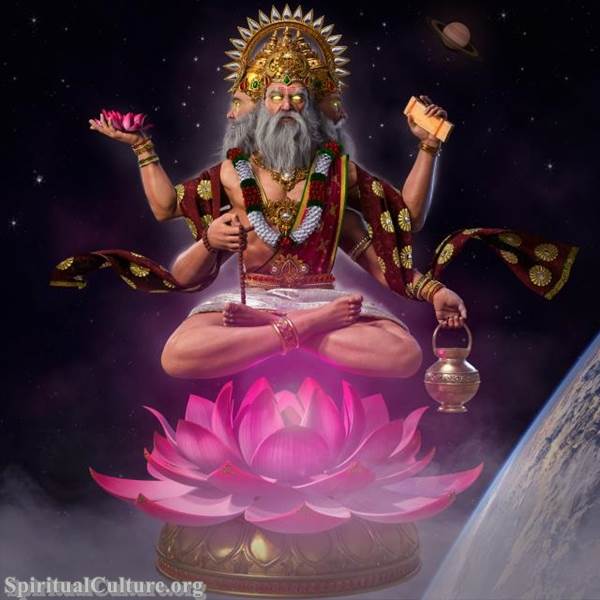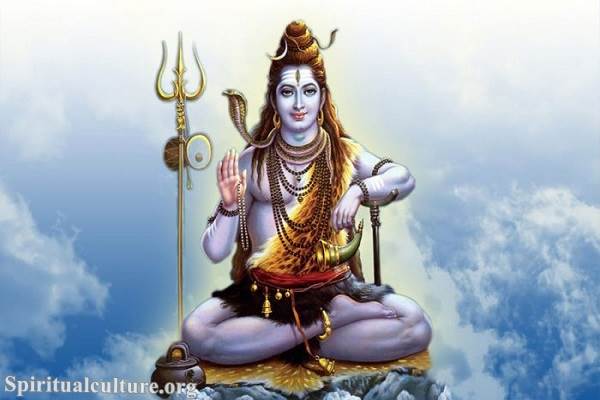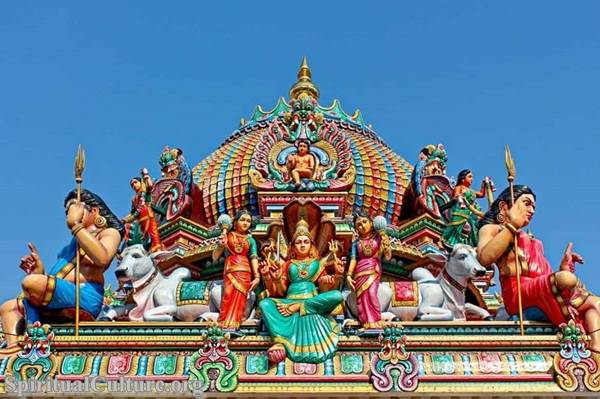There are several holidays in Hinduism, some of the most important ones include:
Diwali holiday
Diwali is a major Hindu festival celebrated annually in October or November. It is also known as the “festival of lights” and is one of the most important and widely celebrated festivals in Hinduism.
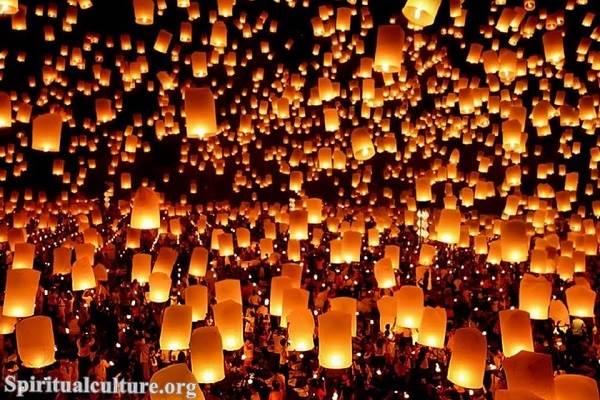
The festival symbolizes the victory of good over evil and light over darkness, as well as the homecoming of Lord Rama after defeating the demon king Ravana. People decorate their homes with lights and lanterns, exchange gifts, and perform puja (worship) to the Hindu gods, especially Lord Ganesha and Lakshmi.
During Diwali, homes are thoroughly cleaned and painted, and new clothes are bought to mark the occasion. Fireworks, feasting, and joyous celebration are also integral parts of the Diwali festivities, which last for five days.
Diwali holds a special significance for Hindu business communities as it is considered an auspicious time to start new ventures and perform financial transactions. It is also a time for families and friends to come together and celebrate the end of the harvest season.
Holi holiday
Holi is a Hindu spring festival, also known as the “festival of colors” or the “festival of love.” It is celebrated in March and marks the arrival of spring, the end of winter, and the victory of good over evil.
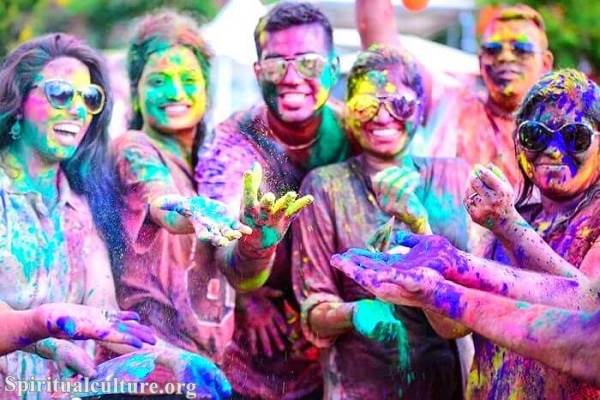
On Holi, people typically throw colored powder and water at each other, dance, sing, and feast. The festival is a symbol of unity, love, and forgiveness and is a time for people to let go of past grudges and come together in celebration.
In addition to the playful and joyous aspects of the festival, Holi has religious significance as well. It is believed to commemorate the Hindu god Vishnu’s victory over the demon king Hiranyakashyap and the sacrifice of Prahlada, his devotee.
Holi is a popular festival, not just in India but around the world, where Hindu communities gather to celebrate and revel in the colors, music, and happiness that the festival brings.
Navaratri holiday
Navaratri is a Hindu festival that lasts for nine nights and ten days, typically celebrated in September or October. The festival is dedicated to the worship of the goddess Durga, who is revered as the embodiment of shakti, or divine feminine energy.
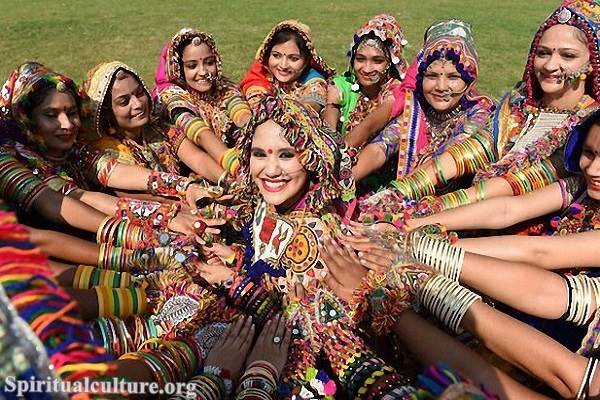
Navaratri is celebrated in different ways across India, with some regions observing it as a festival of dance and others as a time for fasting and religious devotion. During the festival, people perform puja (worship) to the goddess Durga and her various forms, such as Lakshmi and Saraswati.
The festival culminates on the tenth day, known as Vijayadashami or Dussehra, which marks the victory of Durga over the demon Mahishasura. On this day, large effigies of Ravana, the demon king from Hindu mythology, are burned to symbolize the triumph of good over evil.
Navaratri is a time for renewal, rejuvenation, and the celebration of the victory of good over evil, and is widely celebrated across India and by Hindu communities around the world.
Janmashtami holiday
Janmashtami is a Hindu festival that celebrates the birth of Lord Krishna, the eighth incarnation of Lord Vishnu. It is observed in August or September and is one of the most important and widely celebrated festivals in Hinduism.
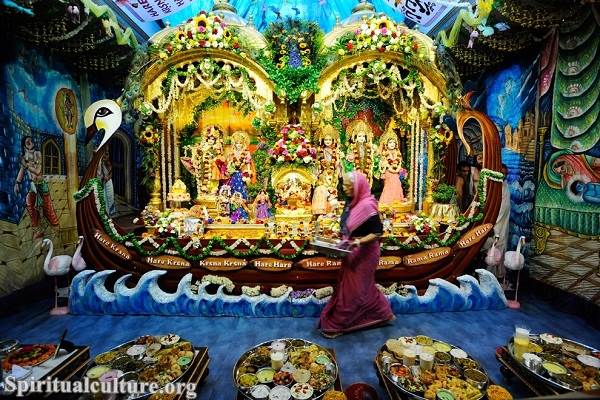
On Janmashtami, devotees fast and perform puja (worship) to Lord Krishna, especially in temples dedicated to him. In some regions, people also perform devotional songs, dances, and reenactments of Krishna’s life and teachings.
In Mathura, the birthplace of Lord Krishna, the festival is marked by grand celebrations and processions, with people carrying idols of the Lord through the streets. In other parts of India, people observe the day by breaking the fast at midnight, when Lord Krishna is believed to have been born.
Janmashtami is a time for spiritual renewal and the celebration of Lord Krishna’s life and teachings, which are central to Hinduism. The festival is widely celebrated in India and by Hindu communities around the world.
Ratha Yatra holiday
Ratha Yatra is a Hindu festival that celebrates the journey of Lord Jagannath, a form of Lord Vishnu, in a grand procession through the streets of Puri in the state of Odisha in India. It is observed in June or July and is one of the oldest and most famous chariot festivals in the world.

During the festival, the deities of Lord Jagannath, Lord Balabhadra, and goddess Subhadra are taken out in a procession in three large, ornately decorated chariots, called “rathas.” The chariots are pulled by thousands of devotees, who sing and dance along the way, as the deities make their way to the Gundicha Temple, where they stay for nine days.
The festival is believed to commemorate the journey of Lord Jagannath to his aunt’s temple and is a symbol of his love and affection for his devotees. It is a time for spiritual renewal and the celebration of the Lord’s divinity and is widely attended by people from all over India and the world.
Ratha Yatra is a major event in the Hindu calendar and is considered one of the most important festivals in the religion. It is a time for devotion, joy, and the coming together of people from all walks of life to celebrate their faith.
Maha Shivaratri holiday
Mahashivaratri is a Hindu festival dedicated to Lord Shiva, one of the most important deities in Hinduism. It is observed in February or March and is considered one of the most significant festivals in the Hindu calendar.
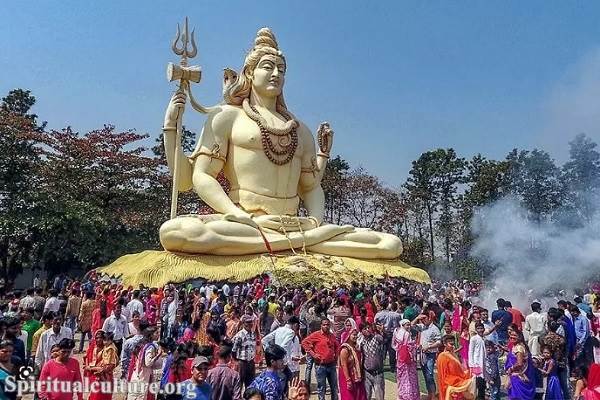
On Mahashivaratri, devotees fast, perform puja (worship), and offer special prayers to Lord Shiva. The night is considered especially auspicious and is spent in devotion and meditation. Some devotees also perform a strict fast, not consuming food or water for the entire day and night.
In temples dedicated to Lord Shiva, the festival is marked by special prayers, chanting of mantras, and the distribution of prasad (sacred food offered to the deity). In some regions, devotees also gather around sacred bonfires and perform rituals and dances in honor of Lord Shiva.
Mahashivaratri is a time for spiritual renewal and the celebration of Lord Shiva’s power and divine grace. It is widely celebrated across India and by Hindu communities around the world and is considered an especially important festival for those who follow the Shaiva tradition.
Ram Navami holiday
Ram Navami is a Hindu festival that celebrates the birth of Lord Rama, the seventh incarnation of Lord Vishnu. It is observed in March or April and is one of the most important festivals in Hinduism.
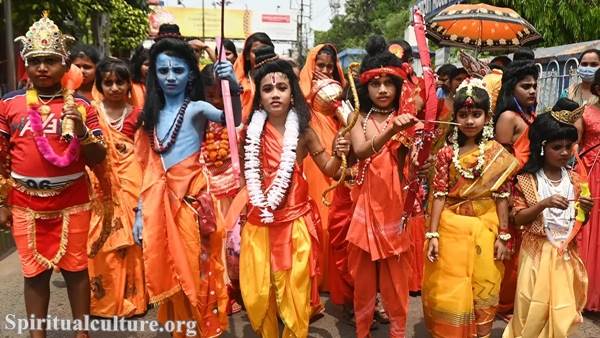
On Ram Navami, devotees fast and perform puja (worship) to Lord Rama, especially in temples dedicated to him. In some regions, people also perform devotional songs, dances, and reenactments of Lord Rama’s life and teachings.
The festival is celebrated with great zeal and devotion in the northern and western parts of India, especially in the state of Uttar Pradesh, where Lord Rama was born. In Ayodhya, the birthplace of Lord Rama, the festival is marked by grand celebrations, with people carrying idols of the Lord through the streets in procession.
Ram Navami is a time for spiritual renewal and the celebration of Lord Rama’s life and teachings, which are central to Hinduism. The festival is widely celebrated in India and by Hindu communities around the world and is especially important for those who follow the Ramanandi tradition.
Guru Purnima holiday
Guru Purnima is a Hindu festival that honors the spiritual teachers or gurus in one’s life. It is observed in July and is considered one of the most important festivals in the Hindu calendar.
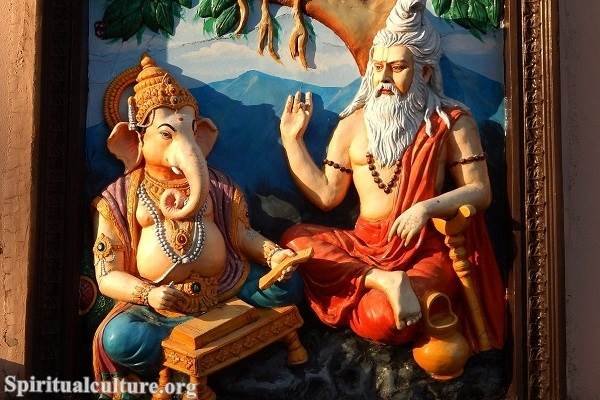
On Guru Purnima, devotees pay homage to their gurus, both past and present, and offer prayers and puja (worship) in their honor. The day is also considered a time for spiritual renewal and the seeking of blessings from one’s guru.
In some regions, people also perform devotional songs and dances and engage in meditation and other spiritual practices. The festival is also observed by Buddhists, who honor the Buddha on this day as their spiritual teacher.
Guru Purnima is a time for gratitude and the celebration of the role that gurus play in one’s spiritual journey. It is widely celebrated in India and by Hindu communities around the world and is an especially important festival for those who follow the spiritual path of Hinduism and Buddhism.
Vasant Panchami holiday
Vasant Panchami is a Hindu festival that celebrates the arrival of spring and the onset of the spring season. It is observed in January or February and is considered one of the most important festivals in the Hindu calendar.
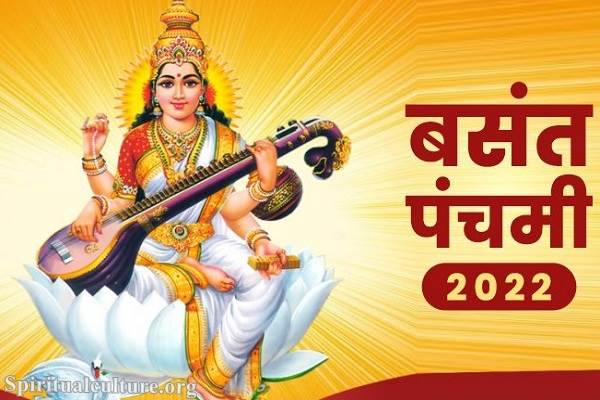
On Vasant Panchami, devotees worship the Hindu deity Saraswati, the goddess of knowledge, music, and the arts. The day is also considered an auspicious day for starting new ventures and initiating learning, especially in the fields of music, arts, and education.
In some regions, people perform special puja (worship) and offer prayers to Saraswati, and wear yellow clothing, which is considered the color of the spring season. Schools and other educational institutions hold special prayers and events to honor the goddess of knowledge.
Vasant Panchami is a time for renewal and the celebration of the arrival of spring, as well as the pursuit of knowledge and the arts. It is widely celebrated in India and by Hindu communities around the world and is especially important for students and those in the fields of education and the arts.
Raksha Bandhan holiday
Raksha Bandhan is a Hindu festival that celebrates the bond between brothers and sisters. It is observed in August and is considered one of the most important festivals in the Hindu calendar.
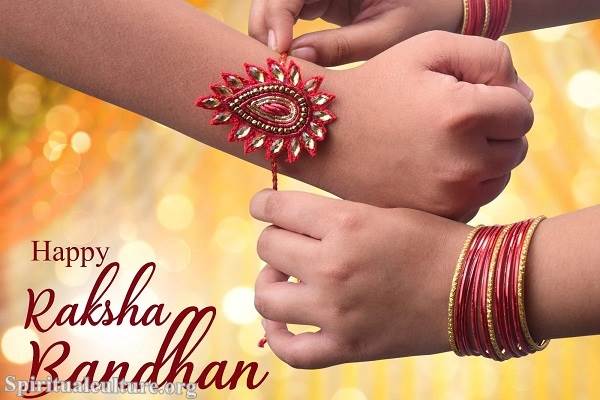
On Raksha Bandhan, sisters tie a rakhi, a sacred thread, on the wrist of their brothers, symbolizing their love and protection for each other. In return, the brothers offer gifts and vow to protect and care for their sisters throughout their lives.
The festival is celebrated with great enthusiasm, especially in northern and western parts of India, where families come together to exchange gifts, sweets, and greetings. In some regions, people also perform puja (worship) and offer prayers for the well-being of their brothers and sisters.
Raksha Bandhan is a time for celebration and the strengthening of the bonds between siblings. It is widely celebrated in India and by Hindu communities around the world and is considered an especially important festival for families.
Dussehra holiday
Dussehra is a Hindu festival that celebrates the victory of good over evil. It is observed in September or October and is considered one of the most important festivals in the Hindu calendar.
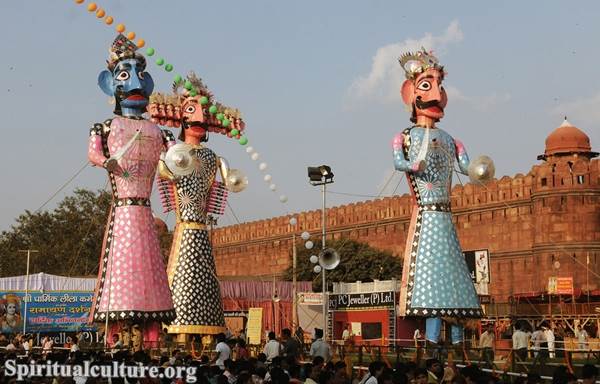
Dussehra marks the end of the Navaratri festival and the victory of Lord Rama over the demon king Ravana. The festival is celebrated by reenacting the victory of Lord Rama through plays, puppet shows, and large effigies of Ravana, which are burned to symbolize the victory of good over evil.
In some regions, people also perform special puja (worship) and offer prayers to Lord Rama, and engage in feasting, music, and dance. The festival is especially important in the northern state of Uttar Pradesh, where Lord Rama was born and is celebrated with great zeal and devotion.
Dussehra is a time for renewal and the celebration of the victory of good over evil. It is widely celebrated in India and by Hindu communities around the world and is especially important for those who follow the Ramanandi tradition.
Makar Sankranti holiday
Makar Sankranti is a Hindu festival that marks the transition of the sun into the zodiac sign of Makara (Capricorn) and the start of longer days. It is observed in January and is considered one of the most important festivals in the Hindu calendar.
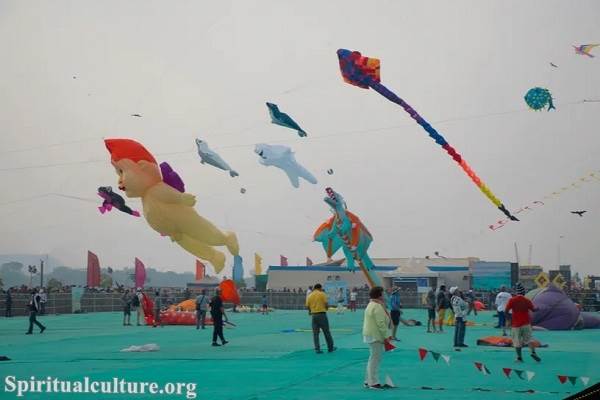
Makar Sankranti is celebrated in different ways across India, with some of the most notable celebrations taking place in the states of Maharashtra, Gujarat, and Andhra Pradesh. In some regions, people perform special puja (worship) and offer prayers to the sun god Surya, and take holy dips in rivers and lakes.
In Maharashtra, people celebrate the festival by flying kites, with communities coming together to participate in large kite-flying competitions. In Gujarat, people prepare sweets made of sesame seeds, jaggery, and peanuts, and exchange them with friends and family.
Makar Sankranti is a time for renewal and the celebration of the change of seasons. It is widely celebrated in India and by Hindu communities around the world and is especially important for those who follow the Vedic tradition.
Ugadi holiday
Ugadi is a Hindu festival that marks the beginning of the Hindu New Year in the Indian states of Andhra Pradesh, Telangana, and Karnataka. It is observed in March or April and is considered one of the most important festivals in the Hindu calendar.
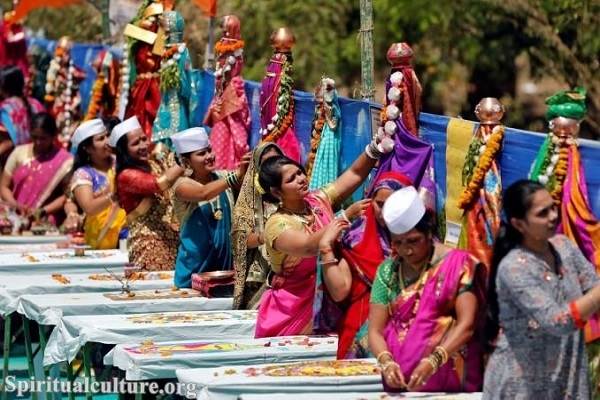
Ugadi is celebrated by performing special puja (worship), offering prayers to the Hindu god of creation, Brahma, and by preparing a special dish called “Ugadi Pachadi,” which is made of six ingredients representing different emotions – sweet (representing happiness), sour (representing anger), salty (representing sadness), bitter (representing hatred), pungent (representing fear), and astringent (representing disgust).
The festival is celebrated with great enthusiasm, especially in the southern states of India, where families come together to exchange greetings and celebrate the arrival of the New Year. People also engage in various cultural activities, such as music, dance, and feasting.
Ugadi is a time for renewal and the celebration of the beginning of the Hindu New Year. It is widely celebrated in southern India and by Hindu communities around the world and is especially important for those who follow the Telugu and Kannada traditions.
These are some of the most widely celebrated Hindu holidays, but the exact dates and celebrations may vary depending on regional customs and the lunar calendar.

